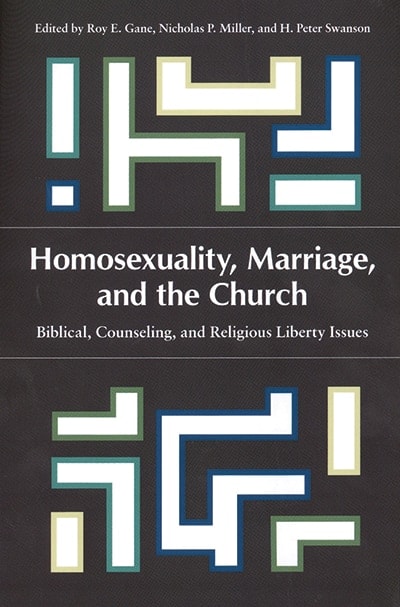
 Homosexuality, Marriage, and the Church
Homosexuality, Marriage, and the ChurchRoy Gane, Nicholas P. Miller, and H. Peter Swanson, eds., Andrews University Press, Berrien Springs, Michigan, 2012, 600 pages, US$24.99, softcover. Reviewed by Clifford Goldstein, editor of the Adult Bible Study Guide.
The great challenge for God’s covenant people, be they antediluvians or those living right before the Second Coming, has been how to live in, and witness to, the prevailing culture without succumbing to the aspects of the culture that conflict with God’s teachings. They haven’t done very well, either. From Baal worship to Sundaykeeping, from polygamy to Darwinian evolution, many of the “faithful” have sailed along nicely on whatever way the wind blows.
What now, then, as the church faces a cultural tornado: the new attitudes toward homosexuality, especially in the Western world, where same-sex practices are, if not the norm, then certainly no longer excoriated and, in some cases, practically celebrated?
What’s a church to do, especially when the greatest challenges are coming not from without, but from within, from professed Adventists who claim that the church’s historic stance against homosexual practice is bigoted and, worse, antibiblical, and that the texts traditionally interpreted as condemning the practice really don’t?
Hence, Homosexuality, Marriage, and
the Church, 600 pages and 20 chapters dealing with the question of homosexu-
ality from biblical, legal, and clinical perspectives.
Right out the gate, the most powerful and (in my opinion) important sections confront the main question for Christians: What does the Bible teach on the subject of homosexual practice? In the first 200 pages Richard Davidson, Robert A. J. Gagnon, Roy Gane, and Miroslav Kiš make short work of the claims that Scripture does not speak out against same-sex practices. Especially insightful, and somewhat disturbing, was Gagnon’s chapter, which dealt with the arguments of two Adventist scholars who argue that the Bible does not condemn “all same-sex” love. If portrayed correctly, the sophistry and exegetical gymnastics used to promote that view make some apologetics for Sundaykeeping look reasonable. For example, according to Gagnon, these men argued that the story of Jesus healing the centurion’s slave (see Matt. 8:5-13; Luke 7:1-10) indicated His acceptance of homosexual unions because, most likely, the centurion and slave were in a sexual relationship, and the fact that Jesus never said anything against it proves that Jesus approved their sexual union.
Roy Gane, meanwhile, looked at the question of what the Bible teaches about these practices, and concludes: “But in a religious community that accepts the Bible as its authoritative guide to faith and practice, the attempt to harmonize Scripture with the acceptance of homosexual practice is futile.”
And although for most people that conclusion is obvious, that’s only part of the problem. The other problem is the religious freedom of those whose faith convictions place them at odds with the prevailing legal and moral atmosphere. Alan Reinach, a lawyer in the Pacific Union Conference, wrote that the “California Supreme Court has equated sexual orientation with race.” Think through, then, the potential implications for a Seventh-day Adventist pastor who cannot in good conscience marry a same-sex couple. This could be just the beginning of sorrows for those who refuse to compromise in what’s a clear biblical teaching.
I’ve touched on only the first two sections; the last two deal with counseling issues and then testimonies about those who have struggled with same-sex attractions and how they have dealt with it.
In the end, unfortunately, some will not be satisfied with anything other than the absolute acceptance of “loving, exclusive, committed same-sex unions,” and those who don’t accept that must be prepared to be labeled as homophobic bigots. It’s true that homosexuals have been treated in very unchristian ways, and for that there’s no excuse. But unchristian attitudes flow the other way, too; just ask those who insist on taking the position that this book does.
Whether or not you agree with the conclusions, any Adventist interested in, and concerned about, what we as a church are facing needs to read this text. You might come away encouraged, infuriated, even worried (maybe a mixture of all three), but you will certainly be more informed as well.